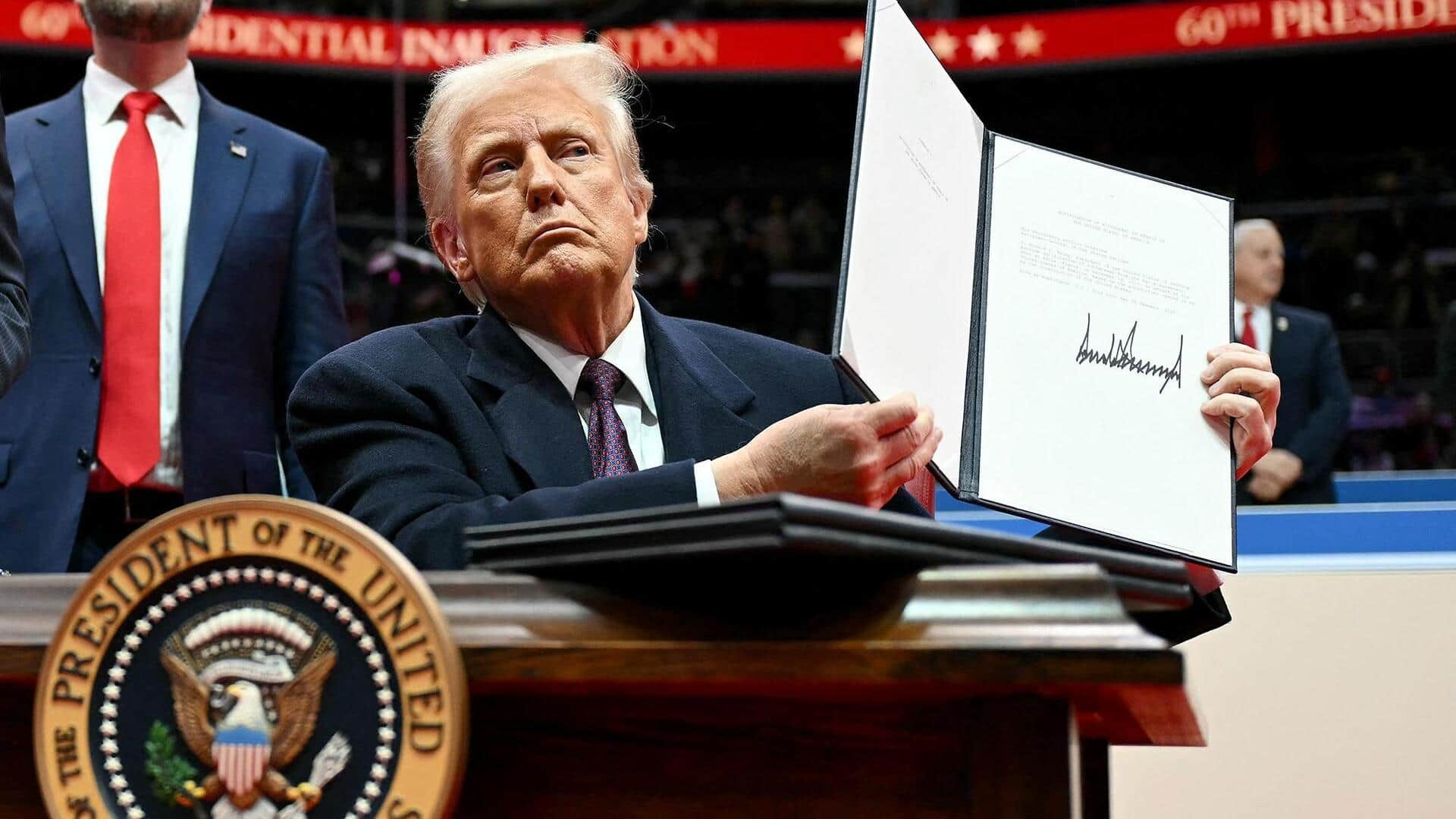
Obese immigrants can be denied visas under new Trump order
What's the story
A new directive from the Donald Trump administration may make it harder for foreigners with certain medical conditions, such as diabetes or obesity, to enter or stay in the United States. The guidance, sent last week in a cable from the State Department and obtained by The Associated Press, asks embassy and consular officials to thoroughly vet visa applicants. They must prove they won't need public benefits after entering the US.
Policy expansion
Expanded definition of 'public charge'
The directive expands the definition of "public charge," a concept in immigration law that can deny foreigners entry or permanent residency based on their potential reliance on US government resources. While federal law already required proof against being a public charge for permanent residency, Trump's first term expanded benefit programs that could disqualify applicants. The new guidelines appear to go even further.
Immigration impact
'Substantial narrowing of immigration'
Julia Gelatt from the Migration Policy Institute said, "This could lead to a substantial narrowing of immigration." The Trump administration is trying to revert to policies from its first term related to the public charge. Trump has continued his immigration crackdown by tightening rules for foreigners entering and living in the US.
Health criteria
New health requirements for visa applicants
The new directive adds more specific health requirements for visa applicants. Consular officials must consider age, health, family status, finances, education, skills, and past use of public assistance. Medical conditions that could disqualify an applicant include chronic conditions, obesity, high blood pressure, cardiovascular, metabolic, and neurological diseases, as well as depression and anxiety. The guidelines also require assessment of applicants' English proficiency through interviews in English.
Family impact
Discretion to interpret guidance
The guidelines mainly affect those outside the US or seeking visa renewals but could also impact family members of immigrants living in the US. Adriana Cadena from Protecting Immigrant Families called the policy "dangerous," saying it deters lawfully present immigrants and US citizens from getting help under federal law. Immigration attorney Steven Heller said consular officers have discretion to interpret this guidance, which shifts messaging toward finding reasons to deny applications.